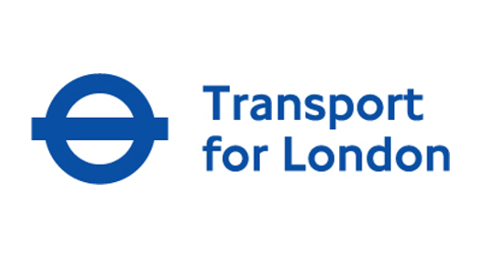Transport for London Pilots the RE:FIT Programme in 22 Head Office Buildings
01 January 2013Transport for London Pilots the RE:FIT Programme in 22 Head Office Buildings
01 January 2013Transport for London played a key role in the Greater London Authority’s successful pilot of the RE:FIT programme, implementing a range of energy saving measures across 22 of its Head Office buildings. These improvements will yield annual energy savings worth £500,000 and cut 2,400 tonnes of CO2 emissions.
Key Facts
- £500,000 annual energy cost savings
- Payback in eight years
- Expected reduction of electricity use by 16%
- 2,400 tonnes less co2 per year
Situation
Transport for London (TfL) is working to reduce CO2 throughout the organisation. In addition to transport-related efficiencies, the organisation already had a track record of improving energy efficiency in its Head Office buildings, which it needed to ramp up to meet tough targets. A major part of this has been its participation in the Mayor of London’s RE:FIT programme.
RE:FIT is a cost neutral procurement initiative that allows public bodies to retrofit existing buildings with energy saving measures, reducing CO2 emissions and cutting costs. Energy Service Companies (ESCos) install energy conservation measures in identified buildings and guarantee annual energy savings
over an agreed payback period. This Energy Performance Contracting model transfers the risk of performance to the ESCos as they must guarantee any agreed energy savings.
TfL has successfully trialled the initiative across 22 of its Head Office buildings, as part of a pilot which also included the Metropolitan Police and London Fire Brigade.
Based on the success of the pilot, the Mayor of London has set up a framework of specialist contractors to roll out the RE:FIT programme across the public sector in London and elsewhere in the UK. Future developments will aim to bring private sector investment to aid this retrofitting programme.
This will support the Mayor’s target of cutting CO2 emissions by 60% by 2025.
Andrew Stanton, Head of Sustainable Buildings at Transport for London said: “The work done by Transport for London, the Metropolitan Police and London Fire Brigade has demonstrated the valuable contribution energy performance contracts can make in delivering the significant CO2 and cost savings required from commercial buildings. By removing the risk of energy savings projects not meeting their targets and by capping pricing, companies and organisations can ensure their investments will have real payback, both from a cash and a CO2 perspective.”
Actions
At 22 of TfL’s Head Office buildings, specialist engineers carried out detailed surveys and investment-grade audits. These provided the technical and financial information required to evaluate the potential guaranteed return on investment of improvement measures.
They used a range of methods, from high-tech computer simulations and thermal imaging, to more traditional methods, such as smoke ‘puffer tests’ to identify leaky windows.
They then advised on detailed improvements that could be made to each building to yield the biggest energy savings within the agreed payback period.
As a result of this, some 70 energy efficiency projects were implemented. These include:
- Low and zero carbon energy sources, such as solar hot water and combined heat and power (CHP)
- Upgrading controls for boilers, chillers, pumps and fans
- Fitting motion and daylight sensors on lighting, and replacing and upgrading lighting with more energy efficient alternatives
- Heat recovery ventilation
- Improving draft proofing and insulation
- Installing a voltage optimiser.
Benefits
Across TfL’s 22 Head Office buildings, the RE:FIT programme is expected to:
- Reduce electricity use by 16%
- Cut gas use by 15%
- Achieve annual CO2 savings of 2,400 tonnes
- Make the buildings more comfortable places to work in.
In 2010, TfL’s Head Office buildings achieved the Carbon Trust Standard, in recognition of the organisation’s efforts and achievements in reducing CO2 emissions over the previous three years, as well as its plans to reduce emissions in the future.The savings achieved through the RE:FIT programme contributed to this achievement.
Financials
Across TfL’s 22 Head Office buildings:
- Capital investment: £4 million
- Annual energy cost savings: £500,000
- Payback: Eight years.
The RE:FIT programme uses energy performance contracts, which see energy service companies introduce energy conservation measures in each building, guaranteeing annual energy savings over an agreed payback period. They have to pay the difference or install extra measures if, at any time, the savings fall short of the guarantee, reducing the risk to the client.
Challenges and Achievements
AVOIDING DISRUPTION
How to avoid disruption for the 5,700 people working in operational buildings?
Wherever possible, work took place out-of-hours to minimise disruption. There was also careful planning and effective communication.
COMPLEXITY
How to manage the sheer volume of measures and infrastructure improvements?
The RE:FIT model simplified the process for TfL, as an energy service company designed, coordinated and managed the energy saving measures across the portfolio.
VERIFICATION
How to accurately monitor performance to ensure that the guaranteed energy savings are being achieved?
TfL worked in partnership with the energy service company to negotiate targets and establish a simple framework based on international standards.
Find out more
Andrew Stanton
Head of Sustainable Buildings
Transport for London
https://tfl.gov.uk/corporate/about-tfl/corporate-and-social-responsibility?intcmp=2736
*Please note that the information on this page was supplied by the BBP Member and the BBP assumes no responsibility or liability for any errors or omissions in the content
